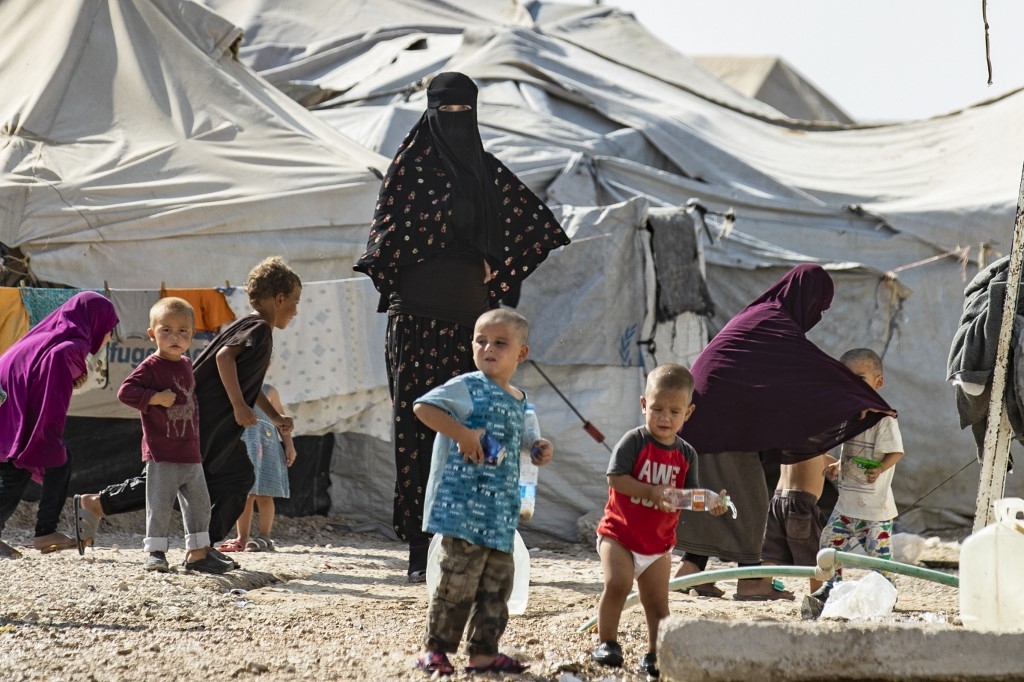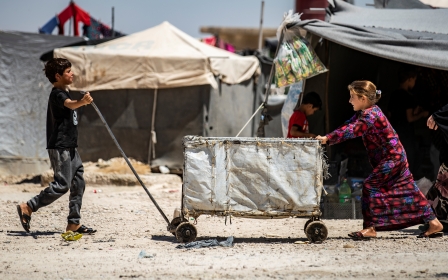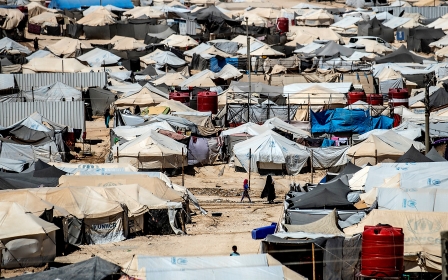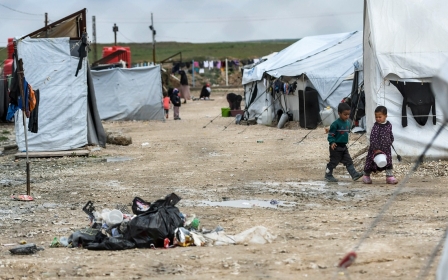Trinidad government acknowledges 'disturbing' evidence over Syrian camp

Responding to a Middle East Eye report that revealed scores of Trinidadian nationals, including over 70 children, were stuck in the dangerously overcrowded al-Hol camp in northern Syria, Trinidadian National Security Minister Stuart Young urged caution, but "acknowledged that some of the evidence was disturbing".
Speaking on Sunday, Young said that his government would “act responsibly and based on facts and evidence” using a cross-agency team, known as Team Nightingale, to “ensure that the best decisions and actions are taken in the public’s interest”.
Trinidad-based families have been lobbying their government for months, in an effort led by Felicia Perkins-Ferreira, who rescued her two children from the neighbouring al-Roj camp in January.
MEE revelations
Audio messages obtained by MEE revealed that Trinidadian children in the Kurdish-run camp had - they thought - contracted potentially life-threatening diseases and desperately wished to return home to the Caribbean.
New MEE newsletter: Jerusalem Dispatch
Sign up to get the latest insights and analysis on Israel-Palestine, alongside Turkey Unpacked and other MEE newsletters
A detailed list compiled by the families and shared with MEE offers an insight into the Trinidadian nationals held at al-Hol, who arrived as part of an exodus of people fleeing the capture of Islamic State-held territory in a US-backed military campaign spearheaded by the Syrian Democratic Forces (SDF) earlier this year.
Some 25 women and 71 child nationals of Trinidad and Tobago were at the camp as of the start of November, according to the documents.
Previous reports put the total number at 25.
Despite having a population of just 1.4 million, Trinidad and Tobago is thought to have contributed the highest number per capita of travellers to territories held by the Islamic State group.
At least 130 Trinidadian nationals went to Iraq and Syria between 2013 and 2016.
This was largely a family affair, the documents obtained by MEE showed. Some extended families have up to nine members at the camp, while within some family groups, there are members spanning three generations.
Grandmothers to babies
The documents show that a 55-year-old woman became a grandmother in Syria after her daughter gave birth to a baby girl three months ago.
In total, 19 of the children held at the camp were born in Syria.
Some Western countries have become more open to quickly evacuating their nationals as the security situation in northern Syria continues to deteriorate, amid fighting between Turkey and the Kurdish-led SDF last month, during which Ain Issa, another camp for displaced persons, was struck.
Germany began repatriating children earlier this year, while Britain is working, with some resistance from government ministers, to bring back children born to suspected IS militants. Belgium vowed to evacuate IS suspects last month.
Meanwhile, UK Home Secretary Priti Patel reportedly intervened to block a recent rescue operation to bring British orphans and unaccompanied minors home from Syria.
Middle East Eye delivers independent and unrivalled coverage and analysis of the Middle East, North Africa and beyond. To learn more about republishing this content and the associated fees, please fill out this form. More about MEE can be found here.




